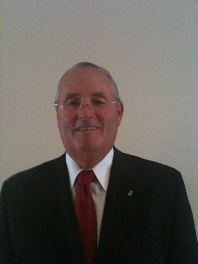Operations Planner
« »
| S | M | T | W | T | F | S |
|---|
| | 1 | 2 | 3 |
| 4 | 5 | 6 | 7 | 8 | 9 | 10 |
| 11 | 12 | 13 | 14 | 15 | 16 | 17 |
| 18 | 19 | 20 | 21 | 22 | 23 | 24 |
| 25 | 26 | 27 | 28 | 29 | 30 | |
|
A Hospitality Conversation™ on Certification: What's in a Name but Letters? - The Value of CMHS
publication date: Jul 3, 2016
|
author/source: Kathleen Hogan, MBA
A Hospitality Conversation™ on Certification:
What's in a Name but Letters? - The Value of CMHS
Most serious-minded hospitality professionals understand the need for continuous learning and value the certifications acquired in their career as being emblematic of their personal growth and professional level of expertise. Whether you boast the distinction of a
- CHA (Certified Hotel Administrator) from the Educational Institute of the American Hotel & Lodging Association,
- CHO (Certified Hotel Owner) from the Asian American Hotel Owners Association,
- FMP (Foodservice Management Professional) from the National Restaurant Association,
- CHSE (Certified Hospitality Sales Executive) from the Hospitality Sales and Marketing Association International,
- CMC (Certified Master Chef) from the American Culinary Federation
or an
- REH (Registered Executive Housekeeper) from the International Executive Housekeepers Association,
certifications build pride and promote higher levels of hospitality-specific knowledge in a language easily recognized industry wide. (This is just a sample list of industry sponsored certifications. There are many more, especially when brand-specific training programs are included.)
There are also many business sectors within hospitality, one of which includes the suppliers who support the hotels and restaurants, for instance. I recently spoke with Jim Weitkamp, CMHS and Vice President of Harbor Linen, who holds a Master Hotel Supplier certification and serves on the Allied Suppliers Committee of the American Hotel and Lodging Association (AH&LA). He is proud to be the 13th person to obtain this certification back in May of 1985 in South Florida.

In just the past year, the Certification Commission of the Educational Institute (EI) of AH&LA (who sponsors this certification) voted to refine the MHS certification to include the letter C. The change in this certification from MHS to CMHS prompted our conversation on the history of the designation, its importance, and why the recent change.
When I asked Jim why he personally earned this certification, he answered he did so in direct response to the heavy promotion of the MHS certification by AH&LA back in 1984 through 1986 as being a valuable asset. He felt having the MHS designation would position him “ahead of the competition with buyers and hotels” and “show a higher level of caring and responsiveness” on his part.
As a long time supporter of the certification, he shared some disappointment that the MHS certification did not appear to be as respected by hoteliers because it lacked the “C” (certified) component in the name. He pointed out that “the preparation, time and (test) questions were the same as for the CHA (Certified Hotel Administrator) in many regards.”
When I asked Jim why he thought the “C” was not included, his explanation was that perhaps ”AH&LA did not feel they could certify one supplier over another” when they introduced this certification. He said the Allied Suppliers Committee has been pushing for the change to CMHS for the past 4 years, but it was not until Kirby Payne, CHA and former AH&LA Chairman, championed the idea that the change became a reality.
I asked Jim how many CMHS designees there are today? He gave me a count of 903 as of October 07, 2010. Other than my co-founder of HospitalityEducators.com, John Hogan, and now him, I do not personally know any other holders of this certification. Jim acknowledged that the CMHS certification has not always been heavily promoted and needs to have greater presence in the industry. He would like to see an increase in the number of CMHS designees and a return to name badges with ribbons or perhaps lapel pins to distinguish this certification from its hospitality peers. Most of all, Jim wants the CMHS designation to be highly respected within hospitality for the additional effort undertaken by suppliers to address the needs of hotels. This effort benefits hoteliers in improved service, quality assurance, and ongoing financial relationships. This extra effort could and should become a true point of distinction among suppliers. _________________________________________
The direct link on additional information on the CMHS is
http://www.ahlei.org/content.aspx?id=29302
_________________________________________
My closing thoughts surround the answer to “what makes any certification special?” The name of the certification is an acronym, a group of letters, a designation, a label, an award and a point of distinction. The certification may be sophisticated, highly regarded, accompanied by a desired pin or plaque. Perhaps what makes every certification special is found in the effort, desire and care in attaining it. Kathleen Hogan, MBA CHO Publisher, HospitalityEducators.com 
Serious-minded hospitality professionals understand the need for continuous learning and value the certifications in their career as being emblematic of their personal growth and professional level of expertise.
Kathleen Hogan, MBA Publisher, HospitalityEducators.com 
|
|

